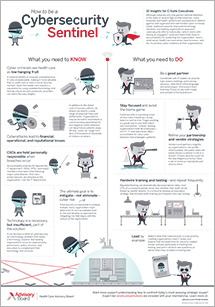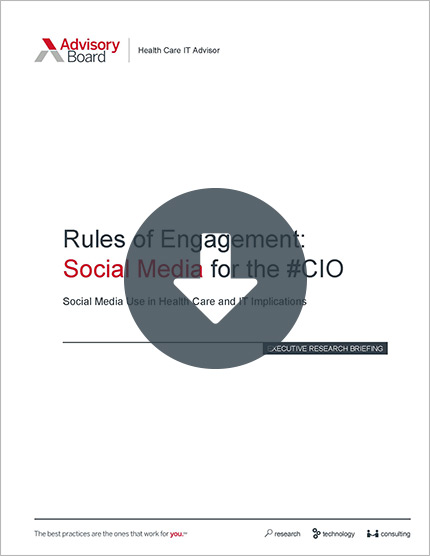Auto logout in seconds.
Continue LogoutIn today's Google-savvy society, patients often turn to the internet for answers to their health care questions, but "medical lies tend to spread further than truths on the internet—and they have very real repercussions," Haider Warraich, a fellow in heart failure and transplantation at Duke University Medical Center, writes in a New York Times opinion piece.
Cheat sheet series: Evidence-based medicine 101
The consequences of false medical information
"While misinformation has been the object of great attention in politics, medical misinformation might have an even greater body count," Warraich writes.
He notes that statins, a widely used drug to treat cholesterol, have become a target of false information in recent years. Though a number of studies show the benefits of statins outweigh the risks, there's been a proliferation of articles on the internet that "exaggerate rare risks and drum up unfounded claims, from asserting that statins cause cancer to suggesting that low cholesterol is actually bad for health," Warraich writes.
Articles like these, he warns, can lead people who need statins to not take them. Warraich recalls one patient who came to the ED where the otherwise healthy woman learned she was having a heart attack. Warraich discovered the patient, who had high cholesterol, had been prescribed statins but wasn't taking them "because of the scary things she had read about statins on the internet."
False medical news can also exacerbate the phenomenon known as the "nocebo effect," in which patients experience adverse side effects to medications because they're expecting them to happen, Warraich writes.
Blinded trials have shown that people who take statins are no more likely to experience muscle aches than those who get a placebo. However, Warraich notes that one study found that nearly a fifth of patients taking statins reported side effects, leading a number of them to stop using the drugs.
Vaccines have long been a target of false medical information, Warraich writes, adding, there's also been plenty of medical misinformation surrounding cancer. For example, he cites one fake story that said cancer tumors are "actually the way your body attempts to contain the harmful cells," and that surgery "compounds the risk of spreading harmful cells." The story, Warraich writes, warned that "prescription medications cause the body to become acidic, adding to the uncontrolled cell mutations,"
Stories like these can lead people to turn to alternative, and often unproven, therapies for cancer, Warraich writes. When patients take alternative treatments in place of clinically proven ones, they're 2.5 times more likely to die, one study found.
How to fight medical misinformation
The burden of correcting medical misinformation lies on many shoulders, Warraich writes.
"Silicon Valley needs to own this problem," Warraich contends. "[W]hen human health is at stake, perhaps search engines, social media platforms and websites should be held responsible for promoting or hosting fake information."
Scientists also have a responsibility to "educate the public about key concepts in research, such as the difference between observational studies and higher-quality randomized trials," Warraich writes. "Transparency is paramount to maintaining the public's trust."
Responsibility also falls on journalists, who need to "do a better job of spreading accurate information," Warraich writes. "News sites are more likely to cover catchy observational studies than randomized controlled trials, perhaps because the latter are less likely to produce surprising results." This kind of coverage can "overstate benefits" and "unduly emphasize potential risks," Warraich writes.
As for providers, sometimes simply telling a patient the facts isn't enough, Warraich writes. For his patient who decided against taking statins, Warraich told a personal story about his dad, who went on statins after having his own heart attack. "I told her that while a statin couldn't guarantee that he wouldn't have another heart attack, I wanted my dad to get his best shot at a healthy life." Even though Warraich had given the patient the "clinical rationale" for statins, "[o]nly" after he shared his personal story "did [the patient] agree to take the prescription."
To combat false medical information, "physicians and researchers need to weave our science with stories," Warraich writes. "This is the only way to close the wedge that has opened up between medicine and the masses, and which is now being exploited by merchants of medical misinformation" (Warraich, New York Times, 12/16).
Cheat sheet series: Evidence-based medicine 101
Been awhile since your last statistics class? It can be difficult to judge the quality of studies, the significance of data, or the importance of new findings when you don't know the basics.
Download our cheat sheets to get a quick, one-page refresher on some of the foundational components of evidence-based medicine.
Don't miss out on the latest Advisory Board insights
Create your free account to access 1 resource, including the latest research and webinars.
Want access without creating an account?
You have 1 free members-only resource remaining this month.
1 free members-only resources remaining
1 free members-only resources remaining
You've reached your limit of free insights
Become a member to access all of Advisory Board's resources, events, and experts
Never miss out on the latest innovative health care content tailored to you.
Benefits include:
You've reached your limit of free insights
Become a member to access all of Advisory Board's resources, events, and experts
Never miss out on the latest innovative health care content tailored to you.
Benefits include:
This content is available through your Curated Research partnership with Advisory Board. Click on ‘view this resource’ to read the full piece
Email ask@advisory.com to learn more
Click on ‘Become a Member’ to learn about the benefits of a Full-Access partnership with Advisory Board
Never miss out on the latest innovative health care content tailored to you.
Benefits Include:
This is for members only. Learn more.
Click on ‘Become a Member’ to learn about the benefits of a Full-Access partnership with Advisory Board
Never miss out on the latest innovative health care content tailored to you.


